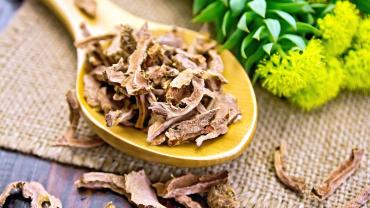
Rhodiola (Rhodiola rosea L.) is an herb with a long history of use in traditional medicine for supporting mental and physical health. Historical records reveal that the Vikings utilized Rhodiola to promote their endurance and physical strength. Modern research suggests that Rhodiola may help healthy energy production and mitochondrial function, potentially benefiting various aspects of health, including athletic performance and healthy stress responses.
Rhodiola is considered an “adaptogen,” a term that dates back to 1947. As an adaptogen, this plant promotes a healthy stress response by supporting non-specific general homeostasis when exposed to physical, chemical, biological, or psychological stressors. In human clinical trials, Rhodiola has demonstrated its potential in supporting healthy stress responses by mitigating the effects of fatigue, exhaustion, burnout, and feelings of weakness.
In a study by Spasov and colleagues, they administered 50 mg of Rhodiola or a placebo daily to 40 medical students over 20 days. The students who received Rhodiola displayed significant improvements in physical fitness, neuromotor functions, and mental performance. Additionally, they experienced statistically significant reductions in mental fatigue, improved sleep patterns, greater mood stability, and increased motivation compared to the placebo group. Other clinical studies conducted on physicians working night shifts, cadets, individuals experiencing burnout-related symptoms, and patients with fatigue syndrome have demonstrated similar results.
The ability of Rhodiola to promote healthy stress responses is primarily attributed to its influence on monoamine neurotransmitters, such as serotonin and catecholamines, and opioid peptides, like beta-endorphins. Furthermore, Rhodiola has been shown to stimulate noradrenaline, serotonin, dopamine, and acetylcholine receptors in the central nervous system. It may also support brain health and upregulate stress-responsive genes in the hippocampus and prefrontal cortex.
Rodent models demonstrate that Rhodiola can activate the synthesis or resynthesis of ATP in the mitochondria and stimulate energy production following intense exercise. This can promote muscle health, cell regeneration, and energy metabolism by increasing the synthesis of ATP, RNA, protein, and amino acids. Moreover, Rhodiola has demonstrated antioxidant properties, helping to attenuate the effects of oxidative stress and promote mitochondrial biogenesis and function.
Rhodiola’s potential effect on healthy stress responses, energy production, and mitochondrial function may promote athletic performance, as seen in clinical studies involving both professional athletes and non-athletic individuals. While some limitations were noted in the research, a 2022 systematic review concluded that individuals receiving Rhodiola exhibited reduced muscle damage after exercise training, improved skeletal muscle health, increased antioxidative status, and improved athletic explosive power, but did not reduce the rating of perceived exertion scores.
While further research is warranted, the potential of Rhodiola to promote cellular energy production and mitochondrial function holds promise for potential clinical benefits on mental and physical health. Furthermore, as an adaptogen, Rhodiola may promote healthy stress responses.
By Danielle Moyer, MS, CNS, LDN